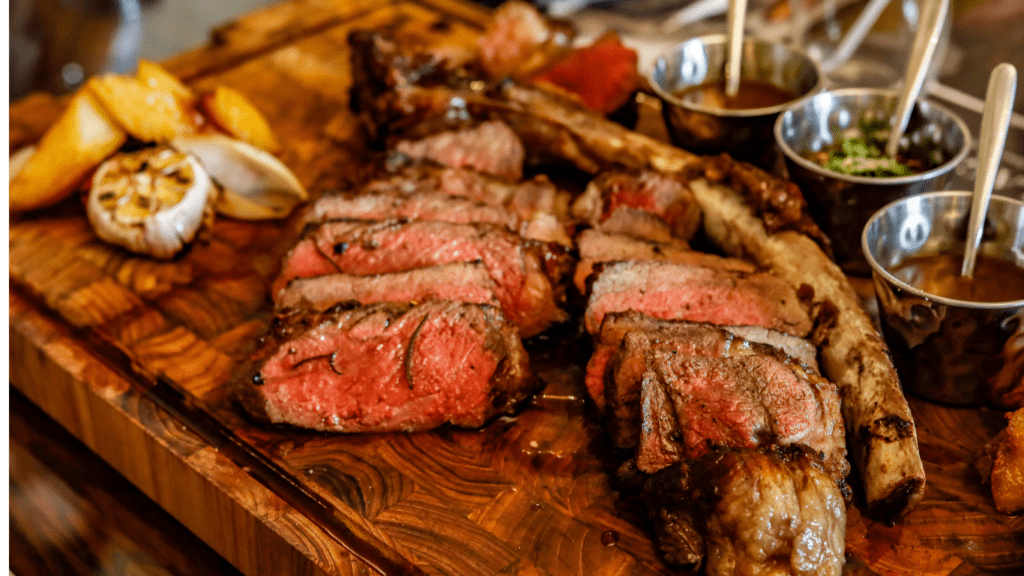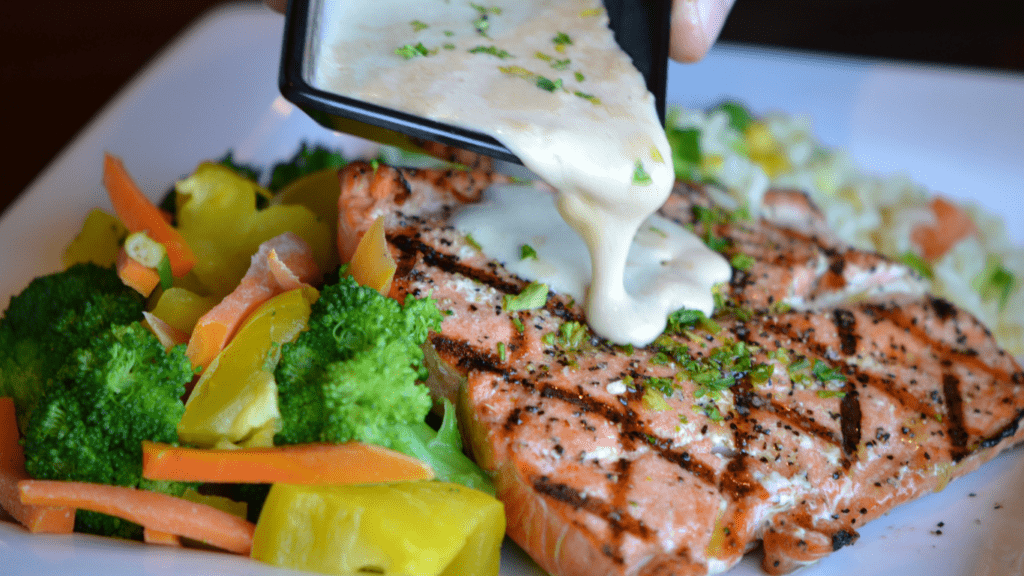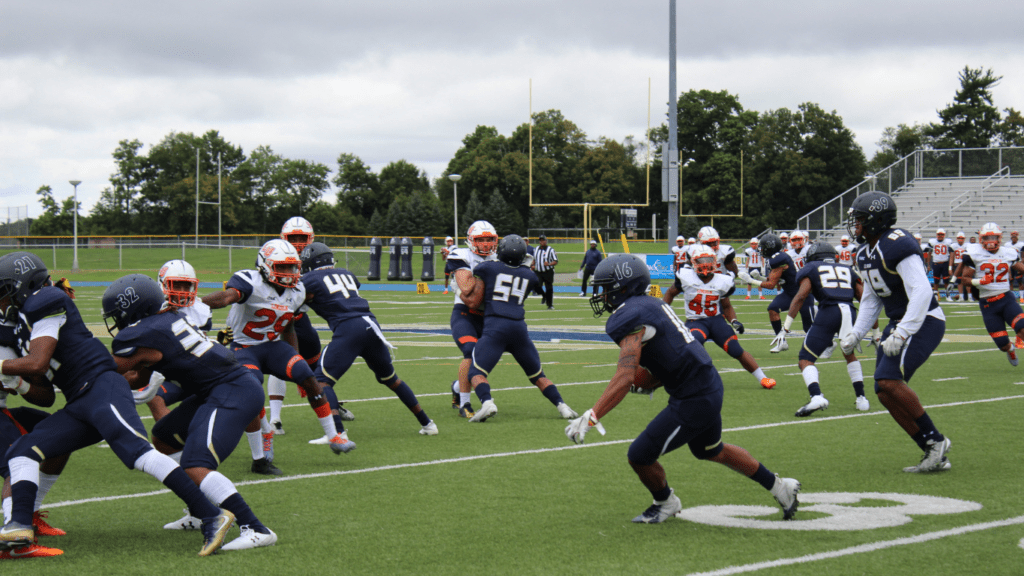Overview of Sports Nutrition
Athletes rely on sports nutrition to maintain high performance levels. It’s not just about what they eat but when and how. They need the right balance of macronutrients and micronutrients to sustain their energy levels, strength, and endurance.
Macronutrients
Proteins support muscle recovery and growth. Chicken, fish, eggs, and legumes are common sources. For instance, bodybuilders often consume protein shakes post-workout to support muscle repair.
Carbohydrates serve as the primary energy source. Whole grains, fruits, and vegetables are favored for their sustained energy release. Marathon runners often carb-load before events to maximize glycogen stores.
Fats provide essential fatty acids and long-term energy. Avocados, nuts, and olive oil are popular choices. Triathletes, for example, balance their fat intake to sustain prolonged physical activity.
Micronutrients
Vitamins like B-complex aid in energy production and red blood cell formation. Citrus fruits and leafy greens are rich in these vitamins, essential for all athletes.
Minerals such as calcium and iron are crucial for bone strength and oxygen transport. Dairy products and lean meats often meet these needs, aiding athletes in maintaining endurance and bone health.
Hydration
Proper hydration is vital. Water regulates body temperature and lubricates joints. Electrolyte-rich drinks, like those containing sodium and potassium, prevent dehydration during intensive sports activities.
Supplements
Some athletes use supplements to fill nutritional gaps. Supplements like creatine enhance muscle mass and strength, while omega-3 fish oils reduce inflammation. These help athletes maintain peak performance without compromising health.
Meal Timing
Strategic meal timing optimizes energy levels. Consuming carbs and protein soon after exercise aids recovery. Snacks before workouts, such as a banana or energy bar, provide a quick energy boost.
Athletes tailor their nutritional strategies to their specific sports and training regimens, ensuring they get the most from their diet. This disciplined approach to sports nutrition helps them stay in top physical shape, ready to tackle their next challenge.
Importance of Balanced Diet

Elite athletes know that maintaining optimal performance relies on a balanced diet. They meticulously structure their nutrition to ensure they consume the right proportions of macronutrients and micronutrients, supporting both energy levels and overall health.
Macronutrients
Macronutrients, consisting of proteins, carbohydrates, and fats, form the foundation of an athlete’s diet. Proteins support muscle repair and growth, essential for recovery after intense training.
Athletes often consume lean meats, eggs, and plant-based proteins to meet their needs. Carbohydrates serve as the primary energy source, especially for high-intensity workouts.
Whole grains, fruits, and vegetables are common choices to replenish glycogen stores. Fats are crucial for long-lasting energy and hormone production. Sources like avocados, nuts, and omega-3-rich fish are prevalent in athletes’ diets.
Micronutrients
Micronutrients include vitamins and minerals, which play critical roles in various physiological functions. Calcium and vitamin D, for instance, enhance bone health, reducing the risk of fractures.
Athletes often consume dairy products, leafy greens, and fortified foods to ensure adequate intake. Iron is vital for oxygen transport in the blood, directly impacting endurance.
Red meat, beans, and fortified cereals are typical iron-rich foods. Electrolytes like sodium, potassium, and magnesium are essential for hydration and muscle function. These are usually replenished through specialized sports drinks and balanced meals.
Pre-Workout Nutrition
Elite athletes prioritize specific nutrients before training to maximize performance. Let’s dive into the key elements of their pre-workout diet.
Carbohydrates
Carbohydrates provide essential energy for workouts. An athlete eats complex carbs, like oatmeal and whole grains, 2-3 hours before exercise to sustain energy levels. Simple carbs, like bananas and energy bars, may be consumed 30-60 minutes prior for a quick energy boost.
Proteins
Proteins aid in muscle repair and growth. Consuming lean proteins, such as chicken breast or Greek yogurt, 1-2 hours before a workout helps prepare muscles for the upcoming strain. Whey protein shakes can be effective when consumed shortly before exercise.
Hydration
Hydration is crucial for optimal athletic performance. Athletes drink 16-20 ounces of water or sports drinks 2-3 hours before exercising to stay well-hydrated. Sipping an additional 8-10 ounces 20-30 minutes before activity ensures they maintain hydration levels during the workout.
Post-Workout Recovery
Post-workout recovery is crucial for athletes aiming to maintain peak performance and stay in shape. Proper nutrition speeds up recovery, restores energy levels, and repairs muscle tissues.
Protein Intake
Protein is essential for muscle repair and growth. After a workout, consuming protein helps rebuild damaged muscle fibers. Elite athletes often consume 20-40 grams of protein within 30 minutes of exercising. Common sources include lean meats, dairy products, and plant-based options like soy and legumes. Whey protein shakes are also popular because they are quickly absorbed.
Replenishing Electrolytes
Electrolytes are vital for maintaining fluid balance and preventing dehydration. Intense workouts cause electrolyte loss through sweat. Athletes often choose sports drinks or electrolyte supplements to replenish these vital minerals. Key electrolytes include sodium, potassium, and magnesium. Some athletes opt for natural sources like bananas, coconut water, and leafy greens to restore balance effectively.
Supplements and Their Role
Supplements play a critical role in the nutrition plans of professional athletes. They help bridge nutritional gaps and enhance performance when combined with a balanced diet.
Common Supplements
Athletes frequently use several supplements to improve performance and recovery.
- Protein Powders: Including whey, casein, and plant-based proteins, aid in muscle repair and growth.
- Creatine: Improves strength and increases muscle mass when paired with resistance training. It’s found in many pre-workout formulas.
- Branched-Chain Amino Acids (BCAAs): Leucine, isoleucine, and valine, collectively help reduce muscle soreness and accelerate recovery.
- Omega-3 Fatty Acids: Found in fish oil supplements, reduce inflammation and support cardiovascular health.
- Electrolytes: Help maintain fluid balance, especially important during intense training sessions.
Safety And Efficacy
Ensuring the safety and efficacy of supplements is vital for athletes.
Supplements must come from reputable brands to avoid contaminants. Many governing bodies, like the World Anti-Doping Agency (WADA), provide lists of approved substances. Quality certifications like NSF Certified for Sport can signify trustworthy products.
Research supporting the effectiveness of supplements should be reviewed carefully. Peer-reviewed studies and meta-analyses provide the most reliable information. Consulting a registered dietitian or sports nutritionist ensures that chosen supplements are appropriate and beneficial.
Following these precautions helps maintain peak performance and health for elite athletes.
Real-Life Examples from Athletes
Elite athletes follow precise nutrition plans to stay in peak condition. Let’s explore what endurance and strength athletes consume.
Endurance Athletes
Endurance athletes, like marathon runners and cyclists, prioritize carbohydrates. They consume 6-10 grams of carbohydrates per kilogram of body weight daily to maintain glycogen stores.
For instance, marathoner Shalane Flanagan includes whole grains, fruits, vegetables, and sports drinks in her diet. She eats meals like oatmeal with fruit for breakfast and quinoa salads for lunch. Hydration is crucial, so she drinks water and electrolyte-rich fluids throughout the day.
Long-distance cyclists, such as Chris Froome, also focus on balanced macronutrient intake. Froome’s meals include lean proteins like chicken and fish, coupled with complex carbs like brown rice and sweet potatoes. Pre-race, he opts for easily digestible foods like white rice with a small amount of protein to ensure quick energy release without gastrointestinal discomfort.
Strength Athletes
Strength athletes, including weightlifters and bodybuilders, emphasize protein for muscle growth and repair. They consume 1.4-2.0 grams of protein per kilogram of body weight each day. For instance, bodybuilder Ronnie Coleman consumed foods like:
- grilled chicken
- egg whites
- protein shakes
His regular meals included chicken breasts with brown rice and broccoli for lunch.
Powerlifters, such as Hafþór Júlíus Björnsson, focus on high-calorie diets rich in protein and fats to support strenuous lifting sessions. Björnsson’s diet contains steaks, fish, eggs, and avocados. His pre-workout meal often includes steak and jasmine rice, providing adequate protein and slow-releasing carbs.
These examples show how specific nutritional strategies aid different athletes. Tailored diets and careful nutrient choices play vital roles in their performance and recovery.




